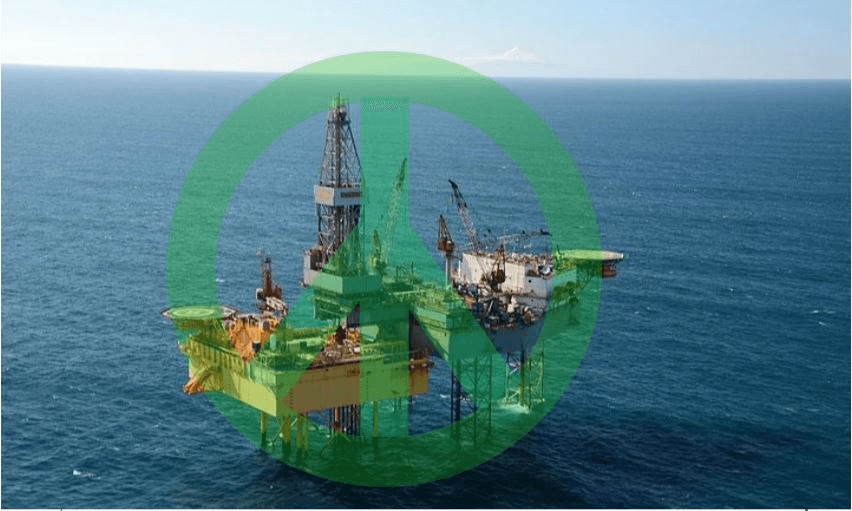Any substantial difference in tackling climate change from banning oil and gas exploration will be tiny, and there will be serious economic costs. If it’s all for symbolic reasons, that’s fine, but let’s be clear that’s what it is, write Liam Hehir
Ever since MBIE released its official advice on the oil and gas ban, there’s been a lot of debate online about whether or not the ministry got its calculations of the costs right. That argument has, in turn, become bogged down in the witchcraft of Excel spreadsheets. Which is a bit annoying, because that’s really just one side of the ledger.
We can take it as a given that there is a cost involved in the ban. You don’t just announce one day out of the blue that you’re going to amputate part of your national economy without doing damage to yourself. Whether the lost royalties are one billion or 25 billion, they will be something.
Then there is the loss of high-paying jobs in the provinces. Not everyone can be a ministerial staffer or policy analyst. And you only need to look to the United States to see what can happen if you are indifferent about the destruction of well-paying blue collar jobs.
We can argue about the extent of the damage until the cows come home. We will never get a satisfactory answer doing that because nothing that we are arguing about is actually testable and real. They’re abstractions built on assumptions. It’s like speculating about what the world would be like if the South won the Civil War.
But, as Twitter-savant Ben Thomas pointed out, “The issue with the ban isn’t whether we can nail down the costs accurately to compare to the benefits – [because] the government hasn’t produced any evidence of benefits at all.”
Now, I don’t think Ben literally meant that. If oil and gas is locked up underground and the government says it’s got to stay there, then the amount of oil and gas available for use is reduced. There’s really no arguing with that.
But there’s also not really any arguing with the pharisaical intent behind the ban. It’s not about making a difference in the world, because the impact oil and gas extracted here has on the climate is negligible. And despite all the hype about Jacindamania conquering America, we also lack the cultural power and economic clout to make a material impact on what happens overseas.
In 2011 I went to a public meeting where a National minister was trying to sell the ETS to audience party members. In what I think was meant to be an appeal to supporting the troops, he pointed out that we only contributed a small part of the forces occupying Afghanistan. But working with other nations, he argued, we could bring democracy and liberalism to that poor, troubled country (which I am sure is just around the corner).
It was a good way to put things. Of course, New Zealand didn’t unilaterally declare war on the Taliban and then plan and execute an invasion on its own. We have played our part, but only in collaboration with others.
Nothing the New Zealand government does of its own initiative will stop the rise of the oceans. In concert with other countries? Quite possibly. But it’s really hard to see how we can move the needle on our own.
I’m not saying we can make no difference – but any difference we do make will be tiny.
So, that being the case, what’s the point of getting out in front of everybody else? To feel good about ourselves, probably, by doing the right thing. And by feeling like we’re doing the right thing.
Which is fine – if that’s what we want to do.
When she was leader of the opposition, Jacinda Ardern declared that fighting climate change was her generation’s nuclear-free moment. Looking back on that comment, one cannot help but be struck by how fitting the comparison was. Then, as now, all the costs of the government’s actions are immediate and certain while the benefits are contingent and incorporeal.
Our anti-nuclear law set back our security alliance and has delivered few tangible rewards. India and Pakistan weren’t inspired by our example to give up their arms race. North Korea wasn’t shamed by our good example into abandoning its proliferation efforts.
Despite that, few New Zealanders would vote to overturn the ban. It has become a symbol of our sovereignty. We’d rather have that than the benefits of resuming a full military alliance with the United States.
Let’s not make this into an argument about how many pixels can dance on the cell of a spreadsheet. We ought to cut to the chase. Some amount of state revenue will be forgone and some very well-paying jobs will be lost in communities that can ill-afford to lose them.
Was that a good trade-off for the symbolic victory achieved?
The Bulletin is The Spinoff’s acclaimed, free daily curated digest of all the most important stories from around New Zealand delivered directly to your inbox each morning.

